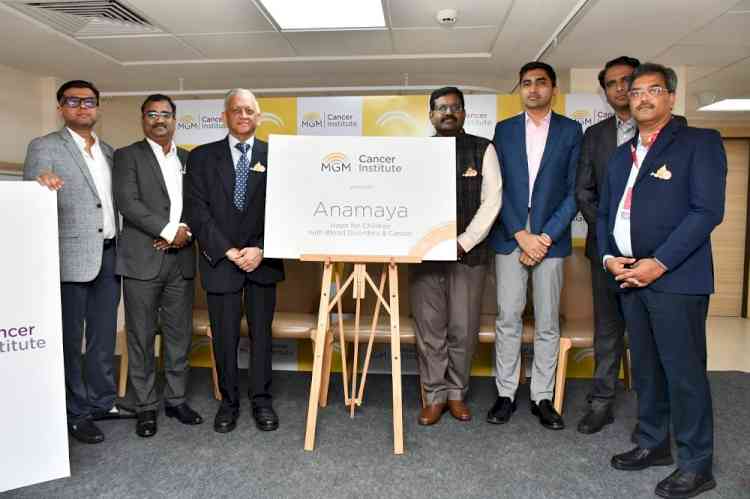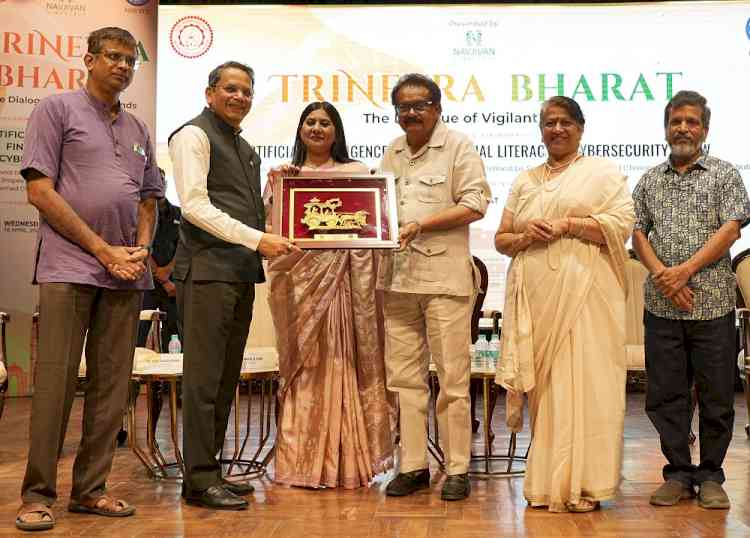MGM Cancer Institute’s Anamaya Program: A new hope for children with Blood Disorders and Cancers
MGM Cancer Institute announced the launch of the Anamaya Program, a groundbreaking initiative aimed at helping children lead a disease-free life, starting with thalassemia. Thalassemia, a genetic condition affecting hemoglobin in red blood cells, has a significant presence in South India.

Chennai, August 20, 2024: MGM Cancer Institute announced the launch of the Anamaya Program, a groundbreaking initiative aimed at helping children lead a disease-free life, starting with thalassemia. Thalassemia, a genetic condition affecting hemoglobin in red blood cells, has a significant presence in South India.
Through the Anamaya Program, MGM Cancer Institute has conducted extensive screening and awareness programs across Tamil Nadu and Andhra Pradesh, including tribal communities. Over the past six months, the institute has screened around 5,000 children for thalassemia and other blood disorders. The institute’s efforts have identified approximately 25 children with thalassemia, who are now being brought to MGM Cancer Institute for further evaluation and treatment in association with Saptha Foundation (A NGO which supports treatment of Thalassemia in children). The treatment expenses will be supported through funds from the government, NGOs, and concessions provided by the hospital.
In Andhra Pradesh and Tamil Nadu alone, approximately 10,000 individuals are affected by thalassemia major, contributing to the larger national count of nearly 100,000 patients. If untreated, this condition drastically reduces life expectancy, with most children not surviving beyond age 15 due to frequent blood transfusions and iron overload in vital organs such as the heart and liver. Currently, bone marrow transplantation (BMT) is the only permanent cure for thalassemia, allowing children to lead normal lives post-treatment.
Addressing thalassemia’s impact involves improving access to screening and care, enhancing healthcare infrastructure, and investing in research for novel treatments like gene therapy. A comprehensive strategy, including prevention programs and robust data collection, is essential for managing this disease effectively.
At the MGM Cancer Institute, the Department of Pediatric Hematology and Oncology offers holistic care for children, adolescents, and young adults with hemoglobinopathies. The institute's mission is to treat these children by understanding their special needs and providing them with comprehensive, compassionate care from diagnosis through recovery.
Speaking about the program, Dr M Deenadayalan, HOD and Clinical Lead, Paediatric Haematology, Oncology, Blood and Marrow Transplantation, said, “Thalassemia is a significant public health concern in India, especially in the southern regions. National surveys indicate beta-thalassemia shows a notable prevalence, with carrier rates estimated at around 3-4% nationwide. However, these rates can surge up to 17% within certain communities, particularly those with high consanguinity or among tribal populations.”
He further added, “This program will be a bridge to the existing gap of uneven access to screening, identifying, and treating thalassemia, other blood disorders and cancers in children. As phase one of the program, our focus will be on thalassemia, which requires lifelong medical care, imposing a strain on the children and families. A multi-pronged approach is necessary, strengthening carrier screening, prenatal diagnosis, and genetic counselling, along with improved healthcare infrastructure and trained professionals.”
Speaking during the event Dr. M A Raja, Director, Oncology Services, MGM Cancer Institute, said, “Thalassemia is a disease diagnosed between birth and two years, and approximately 15000 babies are born in India every year with this. It is an inherited condition, and we in India have the highest number of thalassemia cases in the world. Proper screening and counseling can help to reduce the incidence of this disease because marriage among close relatives who are carriers without disease can give birth to babies with disease. Once a diagnosis is made, standard treatment is only repeated blood transfusions and supportive care. However, this is not curative and can cause heart failure, liver toxicity, and premature deaths. The ONLY curative option is a bone marrow transplant. MGM Cancer Institute is well equipped to offer this treatment to many unfortunate children affected by this disease. Our hospital with expert hematologists and well-trained nurses will help to transform the lives of such children by offering a permanent cure. We will continue your conduct camps for screening, early detection, and counseling in vulnerable populations.”
In addition to thalassemia, the program will extend its screening efforts to other childhood cancers and blood disorders, ensuring early detection and treatment for those in need. MGM Cancer Institute is committed to making a lasting impact in the fight against these conditions, one child at a time.
The Anamaya program was launched in the presence of Dr. M A Raja, Director, Oncology Services, MGM Cancer Institute; Dr. Ananth Mohan Pai Director - Medical Services, MGM Healthcare; Mr. Siva, COO, MGM Cancer Institute and Dr. Vimal Kumar G and Dr. Rishab Bharadwaj from the Paediatric Haematology, Oncology, Blood and Marrow Transplantation department.


 City Air News
City Air News 









